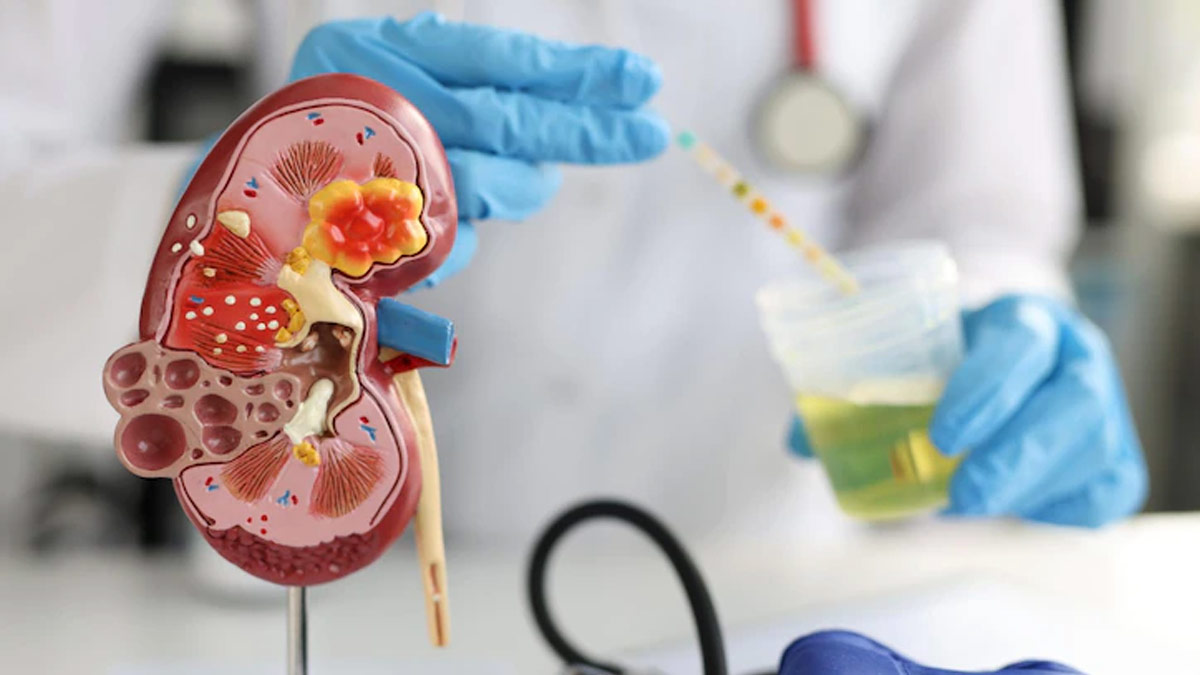
Kidneys are one of our vital organs that perform various functions such as filtering bodily waste by processing excess water and other impurities from the blood. Kidneys play a key role in regulating sodium and potassium levels and maintaining pH balance in the body. But due to unhealthy lifestyles, kidney problems are on the rise. As kidney related diseases are increasing, medical experts are emphasising on the importance of awareness about their early detection, prevention and treatment.
Table of Content:-
In many cases kidney disease goes unnoticed until it has progressed to a devastating point. To avoid this, after the age of 30, an individual should have regular health check-ups. Medical tests, as much as we dislike them, are the only way to determine whether or not one's kidneys are functioning properly.

Tests To Diagnose Kidney Problems In Your 30s
Blood Pressure
High blood pressure should be controlled because it is the second most common cause of renal damage. When a person's blood pressure is 140/90 or greater, it is considered high. However if you have diabetes or kidney disease, blood pressure higher than 130/80 is considered high. Keeping blood pressure under control is recommended to reduce the risk of renal disease and other similar diseases.
Also read: Natural Ways To Treat Kidney Infection Without Antibiotics
Creatinine-to-protein ratio
This test is only used to determine the quantity of protein in the urine. It is regarded as the most accurate method of measuring protein. When it comes to protein levels in urine, a number of 200mg/gm or less is regarded normal, whereas a value greater than this is considered abnormal.
The albumin-to-creatinine ratio
The test is advised for people who have diabetes, high blood pressure, or have a family history of diabetes. A number of 30mg/gm per day in this test indicates early indicators of renal disease. A 24-hour urine sample is not required for the protein-to-creatinine ratio or the albumin-to-creatinine ratio.
Urine dipstick test
This is a simple technique to determine levels of albumin in urine and is frequently performed as part of a Urinalysis. Though the test does not provide an exact measurement, the results are sufficient to inform doctors whether your levels are within normal limits. A change in the colour of the dipstick paper indicates thealbumin level.
Glomerular Filtration Rate
This test determines whether your kidneys are successfully eliminating pollutants from your blood. The test is estimated based on creatinine serum values and parameters such as age and gender. If the findings show a value less than 60, the individual may have kidney disease.
Also read: Diet For Kidney Patients: What Should You Eat And Avoid?
Blood Urea Nitrogen(BUN)
This test measures the amount of blood urea in the urine. Urea nitrogen is a waste product produced by our bodies as a result of protein breakdown from our diet. If a person has healthy kidneys, urea nitrogen is filtered out of the blood and excreted through the urine, maintaining the BUN level within a normal range. The amount of urea nitrogen in urine varies depending on age and other prevalent health issues, but it still ranges from seven to 20. Anything above this suggests that the kidneys are not in good working order. A greater BUN level indicates that the renal disease is progressing.
Urinalysis
This test examines a urine sample to assess the presence of protein, red blood cells, and white blood cells. These components are not normally detected in urine, hence their presence indicates that the kidneys are unhealthy. Presence of protein in urine is an early indicator of renal damage.
Maintaining kidney function is important for overall health and physical well-being. A healthy lifestyle and frequent check-up can keep diseases at bay, and the kidneys will operate effectively to filter and remove waste from the body while keeping it fit.
Image credit: FreePik
Also watch this video
How we keep this article up to date:
We work with experts and keep a close eye on the latest in health and wellness. Whenever there is a new research or helpful information, we update our articles with accurate and useful advice.
Current Version